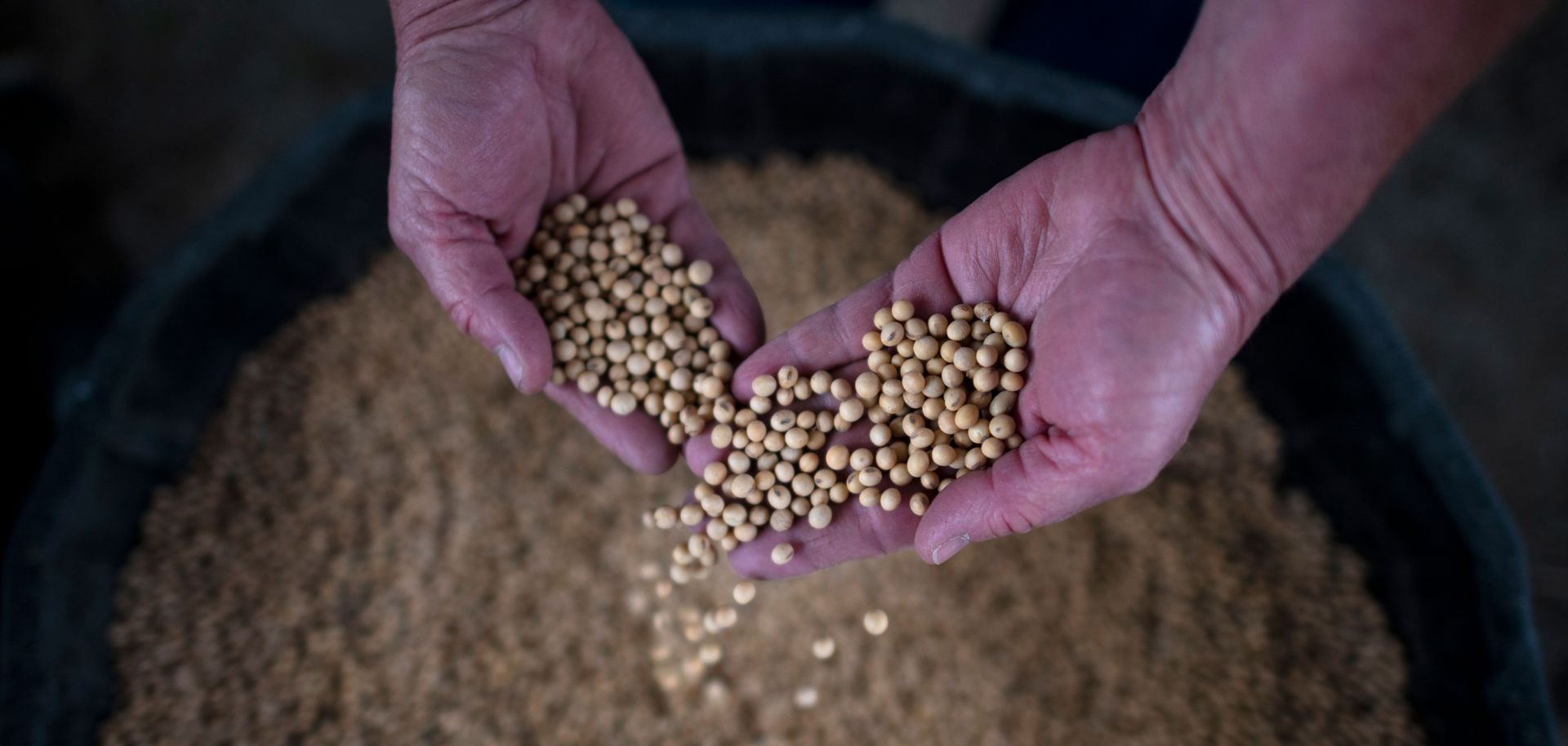ASSESSMENTS
Propelled by U.S. Trade Talks, China Charts a Course to Soybean Security
Jun 28, 2019 | 19:43 GMT

Many soybean farmers in the United States have been hit hard by China's retaliatory tariffs amid the ongoing U.S.-China trade war.
(JOHANNES EISELE/AFP/Getty Images)
Highlights
- China's trade war with the United States has exposed how its large purchases of U.S. soybeans — while a key leveraging tool in its negotiations with Washington — also pose a threat to the country's food security, which has compelled Beijing to boost domestic production where it can.
- Because of its land and water constraints, any increase in China's soybean production will inevitably reduce its domestic production of corn, rice and wheat — forcing Beijing to selectively increase its imports for these once self-sufficient staple grains.
- As a product of its massive population's increasingly animal-based diet, China's appetite for foreign soybeans will never completely subside.
- But short-term drops in domestic consumption, combined with Beijing's long-term diversification strategy, will make China less reliant on the United States for access to such a vital food staple.
Subscribe Now
SubscribeAlready have an account?
